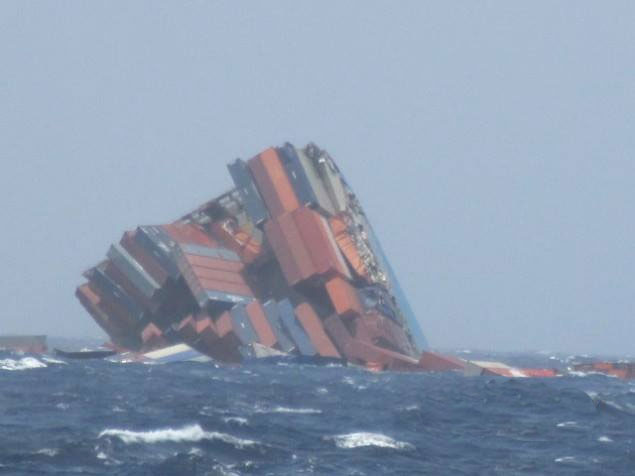When it goes wrong, it really goes wrong
Down With the Ship: 1,700 containers lost at sea.

July 1, 2013
Yemen. Reports from the ship owner say that 1,700 cargo containers--filled with consumer goods--have gone down. Not to mention 1,500 metric tons of fuel oil. What’s next? Nothing.
As best I can understand maritime law, unless negligence can be proven, nobody is responsible for environmental impact fees.* Nobody is responsible for cleanup. Nobody will do any cleanup.
The 1,700 containers will rot slowly on the seabed. One by one, over the years, decades, and centuries, they will rust open. Any plastic goods inside will be completely intact, and they will either float up to the surface or fan out on the seabed. Either way, they will then start to get ground up, broken apart, and ingested by sea life.
Today’s wreck, our great-grandchildren’s problem.
But this is half a world away. Why does this matter to Maine?
Shipping is a for-profit business. Without strict oversight, revenues will overtake safety. As they always do. And in this rabidly anti-tax political environment, where are the oversight revenues going to come from?
When there’s an accident, even a much smaller one--it’s not if, it’s when--where will the responsibility lie? Global shipping is in many regards an incredible achievement. The way that these floating warehouses have opened markets around the world--to trade & share & mutual profit--is amazing.
But it comes with a cost. And sadly, when shipping containers go into the sea, if we don’t put safeguards in place it’s not us who will bear that cost. It’s those who come after us.
What will they say about our priorities?
http://ow.ly/mAizf
- Login to post comments
-


